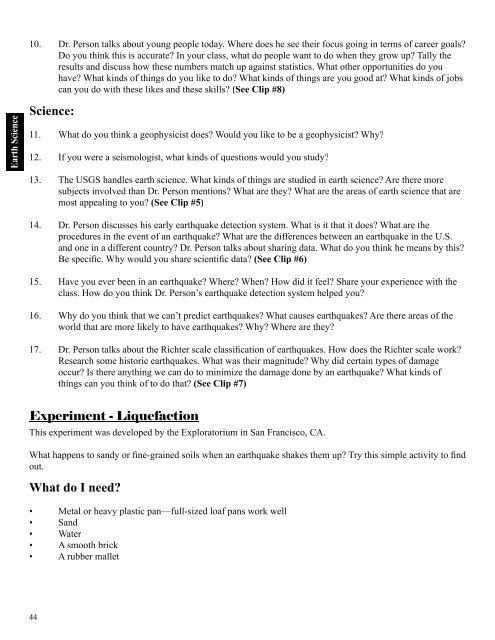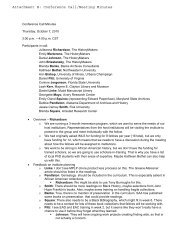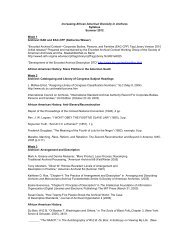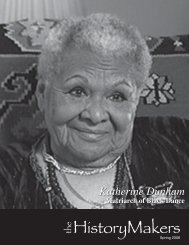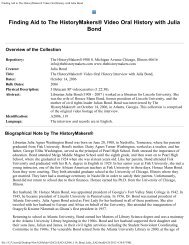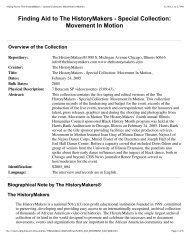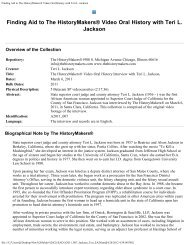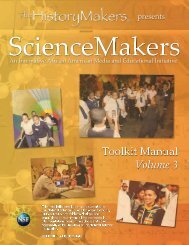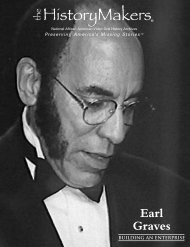ScienceMakers Toolkit Manual - The History Makers
ScienceMakers Toolkit Manual - The History Makers
ScienceMakers Toolkit Manual - The History Makers
Create successful ePaper yourself
Turn your PDF publications into a flip-book with our unique Google optimized e-Paper software.
Earth Science<br />
10. Dr. Person talks about young people today. Where does he see their focus going in terms of career goals?<br />
Do you think this is accurate? In your class, what do people want to do when they grow up? Tally the<br />
results and discuss how these numbers match up against statistics. What other opportunities do you<br />
have? What kinds of things do you like to do? What kinds of things are you good at? What kinds of jobs<br />
can you do with these likes and these skills? (See Clip #8)<br />
Science:<br />
11. What do you think a geophysicist does? Would you like to be a geophysicist? Why?<br />
12. If you were a seismologist, what kinds of questions would you study?<br />
13. <strong>The</strong> USGS handles earth science. What kinds of things are studied in earth science? Are there more<br />
subjects involved than Dr. Person mentions? What are they? What are the areas of earth science that are<br />
most appealing to you? (See Clip #5)<br />
14. Dr. Person discusses his early earthquake detection system. What is it that it does? What are the<br />
procedures in the event of an earthquake? What are the differences between an earthquake in the U.S.<br />
and one in a different country? Dr. Person talks about sharing data. What do you think he means by this?<br />
Be specifi c. Why would you share scientifi c data? (See Clip #6)<br />
15. Have you ever been in an earthquake? Where? When? How did it feel? Share your experience with the<br />
class. How do you think Dr. Person’s earthquake detection system helped you?<br />
16. Why do you think that we can’t predict earthquakes? What causes earthquakes? Are there areas of the<br />
world that are more likely to have earthquakes? Why? Where are they?<br />
17. Dr. Person talks about the Richter scale classifi cation of earthquakes. How does the Richter scale work?<br />
Research some historic earthquakes. What was their magnitude? Why did certain types of damage<br />
occur? Is there anything we can do to minimize the damage done by an earthquake? What kinds of<br />
things can you think of to do that? (See Clip #7)<br />
Experiment - Liquefaction<br />
This experiment was developed by the Exploratorium in San Francisco, CA.<br />
What happens to sandy or fi ne-grained soils when an earthquake shakes them up? Try this simple activity to fi nd<br />
out.<br />
What do I need?<br />
• Metal or heavy plastic pan—full-sized loaf pans work well<br />
• Sand<br />
• Water<br />
• A smooth brick<br />
• A rubber mallet<br />
44


